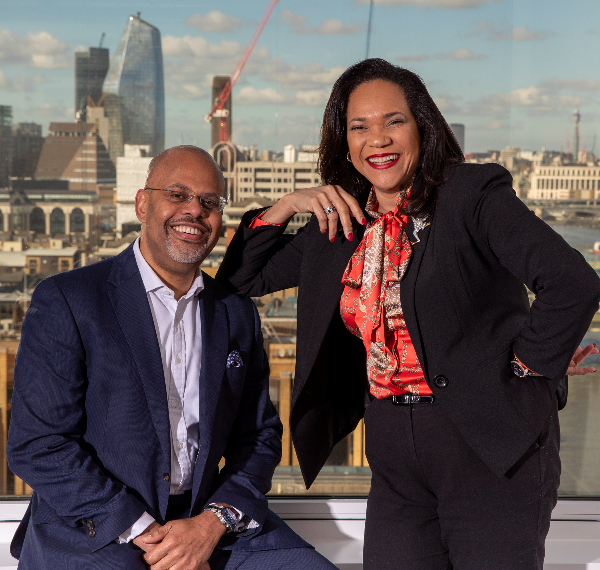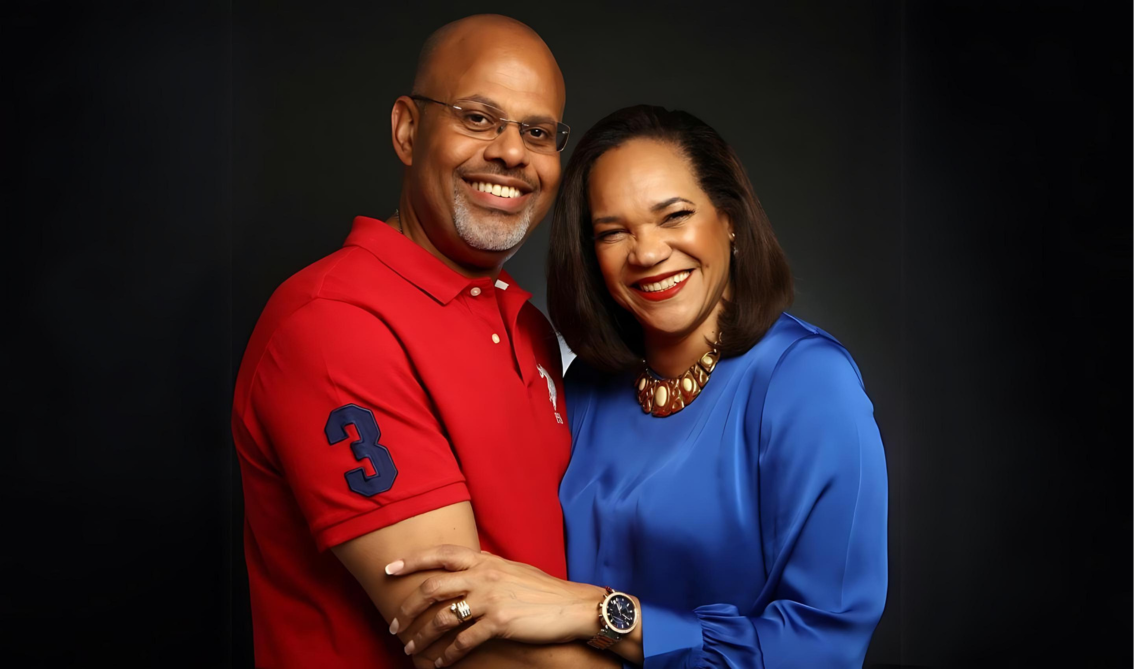

Dr. Andrea Taylor-Cummings and Jonathan Taylor-Cummings, co-founders of The 4 Habits Institute, bring decades of expertise and passion to their mission of fostering healthier relationships. The duo champion a transformative framework centred on four fundamental habits: curiosity, care, communication, and connection. Through their TEDx Talk in March 2019, they unveiled the simplicity and power of these habits, inspiring global audiences to embrace intentional relationship-building practices. Their shared vision is to create a world where relationships flourish, driven by a commitment to empowering individuals and organisations to reach their fullest potential.
The 4 Habits are crucial for building strong connections. How have these habits influenced your approach to leading a team in the business world? Could you share some personal experiences that highlight their impact on your leadership style?
We learned a long time ago that different work styles can be one of the biggest derailers of business success. In the first business we set up together (in our second year of marriage!), we quickly discovered that our different relative strengths were leading us to become very critical of each other’s approaches.
It took us a while to get there, but success came from taking the time, in the face of frustration over different approaches, to stop being critical and instead get curious about the other person’s perspective and why they were doing what they were doing.
Habit #1 of The 4 Habits was born: In the face of difference, BE CURIOUS, not critical. This was an invaluable lesson in understanding that people bring different strengths and approaches and need different levels of support and direction in order to do their best work. We have learnt that to be an effective leader, there is no shortcut for getting to know your team on an individual basis and managing each person as an individual rather than as a group.
Accordingly, our leadership style is very much about building trusting relationships with each person and modelling the behaviours that create trusting relationships, psychological safety, and a collaborative culture within the team so everyone can thrive and do their best work. The 4 Habits guide us in being intentional about the behaviours that achieve this outcome.

A wise soul once said that the role of the Leader is to both ‘take care & take charge’. In our experience, most leaders only focus on the 'taking charge' bit. The post-pandemic era has highlighted the importance of ‘human skills’.
How do you believe incorporating The 4 Habits method could improve the efficiency of a business? Any practical examples or insights?
Thirty years of research with thousands of couples and teams showed us beyond doubt that ALL successful relationships exhibit four simple, yet fundamental habits. Every challenged relationship we have ever seen lacks one or more of those habits.
The research also confirms that the people most different to us are often the most challenging to work with (simply because they see the world through a different set of filters).
That said, our experience has shown us that IF you can get beyond those differences and get to the point where you can actually work together with people quite different to you, those teams can be the strongest – because now you have people around who can cover for each other’s blind spots.
The bottom line is that relationships drive the quality of outcome achieved at every level of the organisation – from the boardroom to the front office to the shop floor. Healthy relationships mean healthy workers, healthy employee engagement, healthy decisions, healthy innovation, healthy bottom-line results. Success on every measure.
Unhealthy relationships cost the business hugely but are often below the radar. Research confirms that workplace conflict costs billions each year and managers spend about 20% of their time – a day a week, dealing with interpersonal conflict.
The better leaders and teams get at building trusting relationships and reducing relational tension, the more collective energy is freed up to deliver bottom line results.
Today we run corporate workshops to help Managers and their teams develop these four habits within the context of addressing specific organisational goals: Developing a Psychologically Safe environment; Building a Culture of Inclusion; Developing Emotionally Intelligent Leaders, and Creating Team Alignment and Collaboration (for senior leadership as well as the rest of the organisation). We have also developed an online course (Relationship Success Accelerator – For Busy Professionals) for those who would rather develop the skills in their own time.
If you had to offer immediate advice to fellow founders on refining their leadership style, what would it be?
A wise soul once said that the role of the Leader is to both ‘take care & take charge’. In our experience, most leaders only focus on the 'taking charge' bit. The post-pandemic era, if nothing else valuable, has highlighted the importance of what are now called ‘human skills’ (formerly ‘soft skills’).
In today’s hybrid world, successful leaders are those with strong people skills. We encourage leaders to lead with more H-E-A-R-T. More Honesty, Empathy, Authenticity, and Respect… which leads to more Trust.
Learning to create trusting relationships one-on-one and leading people with both courage and compassion unlocks the potential of each individual to bring the best of themselves to meet organisational challenges.
The other key advice is to include more diversity and learn how to embrace different perspectives. No one person has all the answers to create globally relevant solutions anymore. Learning to attract diversity and create the environment in which everyone can thrive is key.
In your opinion, what components contribute to maintaining a healthy balance between work and personal life?
In our experience, too few people take the time to actually stop and think about what matters the most to them. Absent that, they are unable to put in place the boundaries they need to establish a healthy balance between work and personal life – because, simply put, no one can respect the boundaries you don’t set!
We encourage people to start by identifying what matters the most to them - typically the 6 key things that will drive their work/business forward the most, AND their personal goals for Health, Wealth, Love, and Fulfilment.
With a clear list of those in place we strongly recommend they develop a strawman template of their ideal week/month, ensuring that each of those things are allocated an appropriate amount of time each week in a way that gives them a sense of life balance. Life happens and things get shifted around, but a template of an ideal week/month helps people know when they are off track, what it is “costing them” in terms of their priorities and what they need to do to bring things back into balance.
In practical terms, learning to defend quiet time to think, reflect/pray and centre yourself first thing in the morning is key, along with space for meaningful work, time to invest in important relationships such as with a partner and children, and time for self-care, exercise and doing things that refuel you are vital components to include for a healthy, sustainable life balance.
Leadership is full of challenges. Can you share a specific difficulty you've encountered as a leader and elaborate on how the principles of The 4 Habits helped you overcome it?
The more difficult leadership challenges are the relational ones. Typically you or the people around you have the technical skills to deal with the operational problems. Quite often we lack the relational skills to deal with the interpersonal challenges, and this is where for us and many others, The 4 Habits are worth their weight in gold.
Each of The 4 Habits helps address a specific challenge most relationships face and we have been on a journey of learning how to make these habits our own in leading others. We will share high level about how these four habits have helped and then share a specific difficulty from our early days for Habit #4.
We already spoke about Habit #1 and how we learned to adapt our style to lead others well as individuals rather than one group.
Habit #2: BE CAREFUL, not crushing is about developing the skills to handle conflict well – in a more “us-centred” way, and not in the one-of-four “me-centred” ways most of us tend to do. In a conflict situation we have learned to respond in a way that shows respect and care for the other person and work towards a solution - rather than just react in ways that damage the relationship. We have also learned that everything we say and do as leaders lands with much more weight so we need to be gentler and kinder without compromising the message.
Habit #3: ASK, don’t assume has helped us get over ourselves – and the assumption that because something is important to me, it must be important to everyone else! And on the flip side, because something is NOT important to me, it couldn’t possibly be important to anyone else! By getting better at asking, rather than assuming, we reduce the likelihood of offending the people around us with our views and expectations of them and also reduce our own tendency to take offence when things don’t go our way. This is hugely important especially when working with different cultures, so we understand what makes people feel respected and disrespected in order to build rather than destroy trust.
Habit#4: CONNECT, before you correct is about learning to communicate value and appreciation in ways that are meaningful to the people around us. Too often we are far more generous and consistent in giving people “constructive feedback” and not so deliberate about telling people how valued they are in ways that matter to them.
Sharing personally, in our first business we learned the hard way that ‘people go where they feel welcomed, but only stay where they feel valued’.
We had one sales person who was clearly not as focused or productive as her team mate, but because they were the same level in the same team – and we had struggled to recruit her – we cut her some slack and rewarded them both the same.
This left the more focused employee feeling undervalued. She found out the pay and bonuses were the same and sadly, we had not acknowledged her contribution specifically even in a conversation. With the benefit of hindsight and leadership wisdom, it is unsurprising that she subsequently resigned.
Our big lesson was that we needed to ensure we communicated value and recognised contribution in ways that actually meant something to each employee if we wanted them to stick around, and that treating people equally is not the same as treating them equally well.
As a leader this takes courage but getting it wrong leaves them vulnerable to other firms showing them more value (and not just in monetary terms) than we were, and they would likely eventually walk.
Incidentally, the same principle applies in domestic relationships too – so we caution leaders to ensure they show meaningful value to those at home too, or risk losing their loved ones and / or their support network!
Want to find out more about The 4 Habits and how they can help you create healthier behaviours and cultures at work, at home or in life? Contact Dr. Andrea & Jon at [email protected].
Ready to start your PR journey with a highly recommended freelancer? Sign up and post a new brief in minutes to start receiving matches and proposals from our UK PR freelancer network.